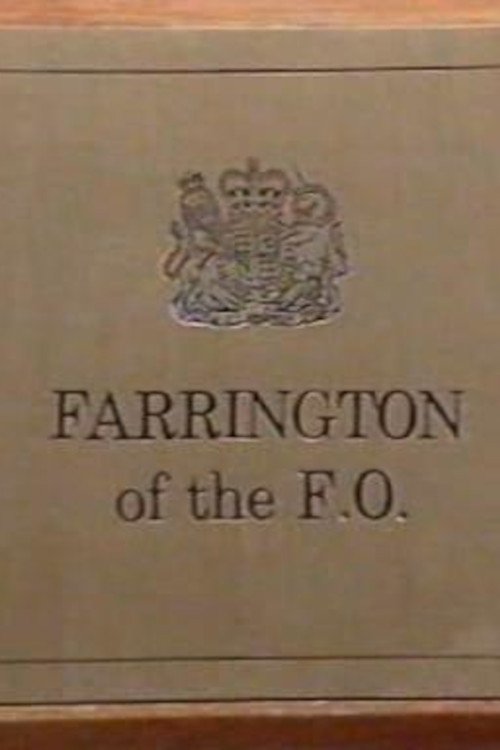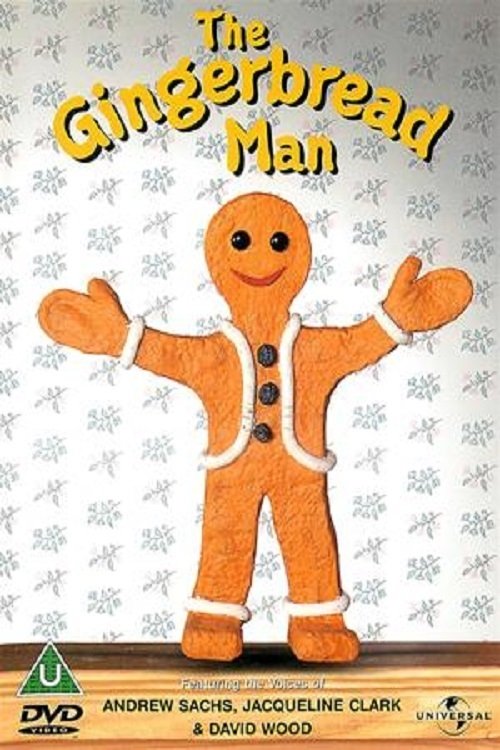
ITV1
Featured Show:
The K Factor
The K-Factor: So You Think You Can Knit? was a fictional TV show ran by Harry Hill, as a segment of Harry Hill's TV Burp. The first episode was aired on 6 February 2010, with a preview of the show being airing on 30 January. The judges are Knitted Simon Cowell, Knitted Cheryl Coles, Knitted Rolando Villazón and the Knitted Character. Each episode lasts approximately five minutes and the viewers can then log onto the official TV Burp website to vote for their favourite. Also available on the site is The K Factor: Unravelled, where Knitted Holly Willoughby will talk to either the contestants or the judges, much like The Xtra Factor. Peter the Duck became the winner of the series. All 7 5-minute mini-episodes plus the Unravelled episodes have been merged into a one-hour compilation episode for TV Burp Gold 3 DVD.
ITV1 TV Shows
2002 shows • Page 93 of 101
 0
0The K Factor
The K-Factor: So You Think You Can Knit? was a fictional TV show ran by Harry Hill, as a segment of Harry Hill's TV Burp. The first episode was aired on 6 February 2010, with a preview of the show being airing on 30 January. The judges are Knitted Simon Cowell, Knitted Cheryl Coles, Knitted Rolando Villazón and the Knitted Character. Each episode lasts approximately five minutes and the viewers can then log onto the official TV Burp website to vote for their favourite. Also available on the site is The K Factor: Unravelled, where Knitted Holly Willoughby will talk to either the contestants or the judges, much like The Xtra Factor. Peter the Duck became the winner of the series. All 7 5-minute mini-episodes plus the Unravelled episodes have been merged into a one-hour compilation episode for TV Burp Gold 3 DVD.
 0
0A-Z of Rude Health
A-Z of Rude Health was a medical series taking a lighthearted look at sexual health. For every letter of the alphabet, a topic of sexual health was covered. e.g. A for Anal, B for Balls, C for Chlyamydia etc. The factual but lighthearted studio segments were presented in a semi-improvised format by Dr Phil Hammond and Dr Annie Evans after scripting discussions between the presenters and Mr Peter Greenhouse, while all three worked together at the Bristol Department of Sexual Health, and the vox pops and comedy pieces were written and performed by Kev F Sutherland. It was broadcast late on Friday night on regional ITV in the Bristol and West area. The same production team, at HTV in Bristol, went on to produce the first TV series of The Sitcom Trials, also for ITV.
 0
0No – That's Me Over Here!
No – That's Me Over Here! was a British sitcom that aired for three series from 1967 to 1970. It was created by Barry Cryer, Graham Chapman and Eric Idle, and it featured Ronnie Corbett's first acting starring role, alongside Rosemary Leach, Henry McGee, Ivor Dean and Jill Mai Meredith. It was originally made by Associated-Rediffusion for the ITV network, with its production being continued by London Weekend Television for the third and final series.
 0
0Concentration
Concentration originally aired from 16 June 1959 to 7 June 1960 by Granada and was hosted by Barry McQueen in 1959. It was later revived by TVS from 4 September 1988 to 1990, hosted by Nick Jackson and Bob Carolgees. Both versions were shown on ITV, while the American version with Alex Trebek was also shown by Sky One in the 1990s.
 0
0The $64,000 Question
The $64,000 Question is a UK game show based on the US format of the same name that originally ran from 19 May 1956 to 18 January 1958 produced by ATV and was originally hosted by Jerry Desmonde, and called simply The 64,000 Question with the top prize initially being 64,000 sixpences, later doubling to 64,000 shillings.
 0
0Cheryl Cole's Night In
Cheryl Cole's Night In was a one-off television special, starring British singer Cheryl Cole, produced for ITV, that aired on 12 December 2009 at 6:30 pm. The programme was hosted by Holly Willoughby, featured a host of other performers and acted as a lead-in to the final of the sixth series of The X Factor, in which Cole is a judge. Cole performed songs from her debut solo album, 3 Words, and the programme also featured performances from other musical acts as well as interviews conducted by Willoughby. The programme received mixed reviews from critics and was watched by 5 million people; this is substantially less than the viewing figures of other programmes airing at the same time.
 0
0Take a Letter
Take a Letter is a game show that originally aired on ITV from 10 January 1962 to 24 June 1964 and was originally hosted by Bob Holness. It was revived in 1997 and aired on Living with Jenny Hull as the host.
 0
0ITV News
ITV News was the name given to the late news bulletins, airing on Bank Holidays and after extended Football coverage on the British television network ITV. Originally named The Late News, it aired in place of ITV News at Ten on Fridays. It is produced by ITN. The bulletin was introduced as a thirty-minute Friday night news programme on 18 January 2008, with the same studio and look as News at Ten, and was presented by Mark Austin and Julie Etchingham. However, in February 2008, the bulletin took on the same generic look used for the ITV News bulletins, and in March began being presented by one newscaster. On 25 February 2009, ITV announced that News at Ten would begin to air five nights a week, in order to give News at Ten a "consistent home at the heart of the schedule", as well as being due to a rise in ratings and the success of the pairing of the programme's newscasters. The final Friday night edition of The Late News was broadcast on 6 March 2009.
 0
0Blips
Blips is a British children's television series from Ragdoll Productions, which first aired on CITV in 2004 and returned for a second series in 2005. It starred Robin Stevens as Mr. Perfect and Patricia Routledge as the narrator. The 26 episodes were written by Alan Dapre & Robin Stevens. Since 2006, the show has been often repeated on the CITV channel. The Blips are animated characters in a live-action setting. Music by Paddy Kingsland
 0
0Farrington of the F.O.
Farrington of the F.O. is a British television comedy series by Dick Sharples about the staff of the British Consulate in "one of the armpits of Latin America". It was produced by Yorkshire Television and broadcast from 1986 to 1987. Its second, and final, series was simply called Farrington.
 0
0WOW!
WOW! was a children's entertainment magazine programme, broadcast in 1996 on the UK's ITV television network. It aired for 16 weeks from 31 August to 14 December 1996, preceded by the Summer 1996 run of Scratchy & Co. and followed by the spring 1997 run of the same show. The presenters of WOW! were Simeon Courtie and Sophie Aldred. The programme was broadcast from The Maidstone Studios in Kent, also home over the years to shows such as No. 73, Motormouth, and Holly & Stephen's Saturday Showdown. The programme was produced by The Media Merchants for ITV. The show was a live, anarchic, entertainment magazine similar to Tiswas or Motormouth. It featured imported cartoons, guest interviews and music performances, games and competitions, and comedy. Comic characters featured within the show included the 'Tea Ladies' - played by male actors Peter Cocks and Woody Taylor - supposedly 'interrupting' the show to provide banter and bicker with the guests; and Syd the Spider, a puppet arachnid voiced by Phil Cornwell.
 0
0The Wall Game
The Wall Game was a 1985 children's television game show produced by Thames Television for ITV. The show was based on the idea of a theatre workshop and would see two groups of contestants building sets from pieces of a giant wall, then improvise a play. The programme was presented by Helen Bennett and also starred Hal Lehrman, Anthony Johns, Sinitta, Deborah Goodman, and John Ramm. The series was chosen to represent Britain at the 1985 Tokyo World's Fair.
 0
0Snug and Cozi
Snug and Cozi was a children's ITV slapstick comedy series about 2 aliens who had crash landed on earth by mistake and met a new friend called Emily.
 0
0Cowboys
 0
0Half Broken Things

The Gingerbread Man
The Gingerbread Man is a stop motion animated children's television series about a gingerbread man and his friends, who come to life in their kitchen home when the people are asleep. The series was written by David Wood, adapted from his two-act musical play The Gingerbread Man, which premiered in 1976 at the Towngate Theatre in Basildon, Essex, and went on to great international success. The play is inspired by "The Gingerbread Man", a 19th-century fairy tale. The screen adaptation was co-produced by FilmFair and Central Independent Television in 1991, and broadcast on ITV On September 24 1992.At 5:40pm Andrew Sachs voiced the roles of the Gingerbread Man, Salt the Sailor, and Herr von Cuckoo. Jacqueline Clarke voiced Miss Pepper.
 0
0The Krankies Klub
This was the Krankies first attempt at solo attempt at a children's television show since Crackerjack.
 0
0Krankies Television
This was the Krankies third attempt at solo attempt at a children's television show since Crackerjack this time on ITV.
 0
0A Word With Alf
 0
0